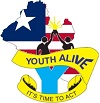 HIV/AIDS continues to be a global health challenge, affecting millions of individuals and communities worldwide. While significant progress has been made in HIV prevention and treatment, the battle is far from over. The key to turning the tide against this epidemic lies in empowering individuals with the necessary knowledge, skills, and attitudes to effectively engage in HIV prevention. This empowerment extends to comprehensive strategies that encompass Pre-Exposure Prophylaxis (PrEP), Post-Exposure Prophylaxis (PEP), counseling, and gender-responsive approaches.
HIV/AIDS continues to be a global health challenge, affecting millions of individuals and communities worldwide. While significant progress has been made in HIV prevention and treatment, the battle is far from over. The key to turning the tide against this epidemic lies in empowering individuals with the necessary knowledge, skills, and attitudes to effectively engage in HIV prevention. This empowerment extends to comprehensive strategies that encompass Pre-Exposure Prophylaxis (PrEP), Post-Exposure Prophylaxis (PEP), counseling, and gender-responsive approaches.
Among other activities, Youth Alive Liberia conducted training on PrEp guidelines with participants comprising of Peer Educators, Peer Navigators from Youth Alive Liberia teams from Bong, Nimba, Bassa and Margibi counties. The objectives of this training was Increase knowledge and understanding of PrEP (pre-exposure prophylaxis) and PEP (post-exposure prophylaxis), Enhance counseling skills for HIV prevention, Promote gender-responsive approaches to HIV prevention, Foster cultural competence in HIV prevention and Strengthen referral and coordination systems.
Empowerment is not just about providing information; it’s about instilling confidence in individuals to take control of their sexual health
YAL has been implementing the HIV component of the “TB/HIV Response for Key Population and Community TB program in High Burden Areas” project. The project funded by Global Fund through Plan International has been running from 2021, to end in 2023.
In HIV/AIDS prevention, YAL has been promoting counselling, whereby individuals have continued to be equipped with the knowledge and skills to make informed decisions about their sexual health. This has included understanding the importance of regular HIV testing, practicing safe sex, and addressing issues such as stigma and discrimination.
YAL has also been using a gender responsive approach in HIV/AIDS prevention. Empowering all genders with tailored information and support is essential. For example, transgender individuals may face unique challenges related to hormone therapy and sexual health. Addressing these specific needs through gender-responsive programs ensures more comprehensive and effective HIV prevention.

Empowerment is not just about providing information; it’s about instilling confidence in individuals to take control of their sexual health. Self-efficacy is the belief that one can take actions to protect themselves from HIV. Empowerment programs should focus on building this sense of self-efficacy, encouraging individuals to be proactive in their prevention efforts.
It is a collective responsibility to ensure that everyone has the tools and support they need to play an active role in HIV prevention.
Empowering individuals with the necessary knowledge, skills, and attitudes to engage in HIV prevention through PrEP, PEP, counseling, and gender-responsive approaches is a critical step in the fight against HIV/AIDS. Through comprehensive education, access to services, stigma reduction, and the promotion of self-efficacy, we can create a world where individuals are better equipped to protect themselves and their communities from the devastating impact of HIV. It is a collective responsibility to ensure that everyone has the tools and support they need to play an active role in HIV prevention.
